Author:Dafon Kerbstone Machine FROM:Stone Machine Manufacturer TIME:2024-07-16
This comprehensive guide will address all your inquiries regarding granite cutting machines. Whether you seek insights on the components, working principle, features, or design - rest assured that you will find all the pertinent information here. Keep reading to delve deeper into this topic.
A granite cutting machine is designed to cut granite, a hard and durable natural stone widely used in construction and home improvement projects. This machine utilizes various cutting methods, such as sawing or milling, to shape granite into desired forms and sizes for different applications.
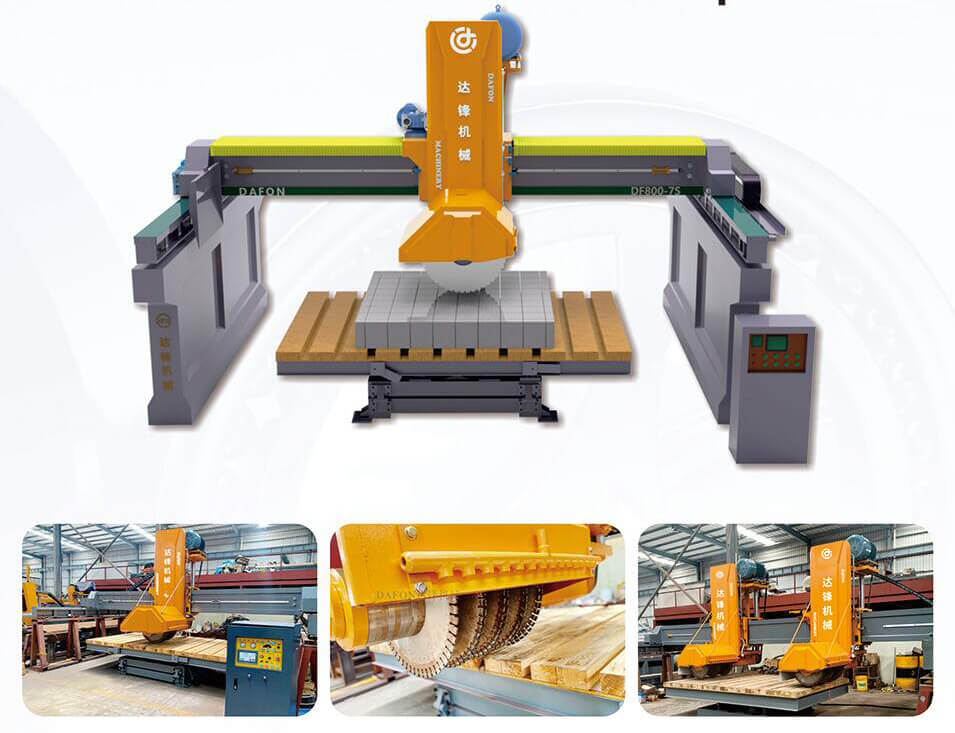
Granite cutting machines typically consist of the following common parts
Cutting Blade: Used to cut through the hard granite material.
Motor: Provides the power necessary to operate the machine and drive the cutting blade.
Worktable: Provides a stable worktable for positioning the granite stone.
Control Systems: Allow the operator to set parameters and control the cutting process.
Water System: Helps to cool the cutting blade and reduce dust during cutting.
Rails or Guides: Assist in guiding the cutting blade for precise cuts.
Safety Features: Such as emergency stop buttons and guards to ensure safe operation.
Concrete Base: Supports and stabilizes the machine during operation.
Hydraulic System: Controls the movement of the cutting blade and other mechanical functions for efficient cutting processes.
These components work together to facilitate the cutting of granite with precision and efficiency.
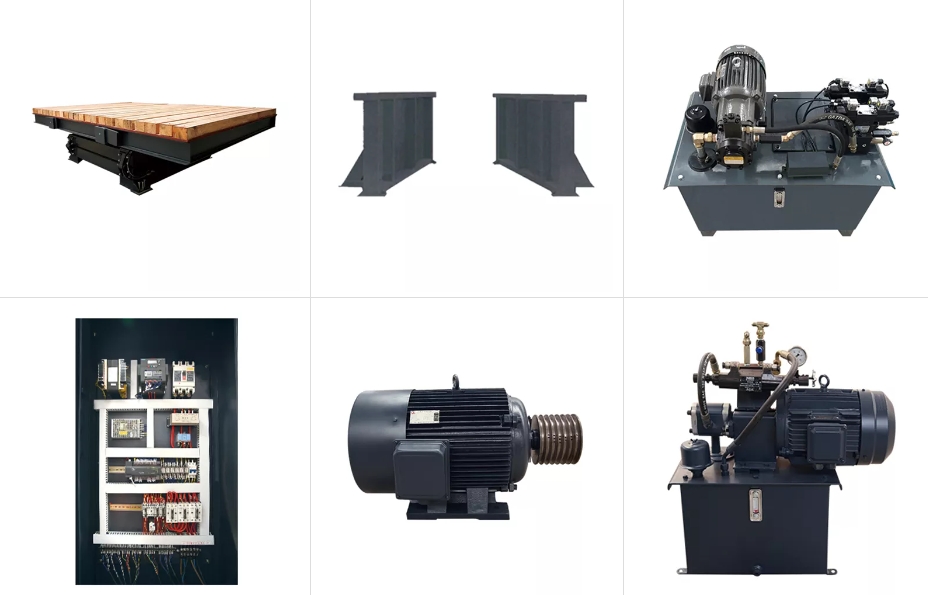
A granite cutting machine works by utilizing a cutting blade, typically made of diamond or another hard material, to slice through the tough granite material. The machine is powered by a motor that drives the cutting blade, providing the necessary force and speed for cutting.
The granite stone to be cut is carefully positioned on the work table of the machine. The operator sets the cutting parameters, such as depth and speed, using the control systems integrated into the machine.
Once everything is set up, the cutting processing is already started, the cutting blade is activated, and it moves along rails or guides to precisely cut through the granite. The water system helps to cool the cutting blade and reduce dust during the cutting process.
Overall, a granite cutting machine combines mechanical power, precise control systems, and safety features to efficiently cut through granite and produce desired shapes and sizes for various construction and design purposes.
When choosing a granite cutting machine, consider the following features:
Cutting Capacity
Ensure the machine can accommodate the size and thickness of the granite you will be cutting.
Production Capacity
Notably, the availability of the granite cutting machine to achieve high-quality, high-speed production is critical.
Generally, the number of meters of granite that can be cut by a granite cutter in 8, 10, or 24 hours of continuous operation per day is one of the most important factors that the user needs to consider when selecting a machine.
Motor Power
Choose a machine with a powerful motor to provide sufficient cutting force for tough granite.
PLC or CNC Technology
The system is a PLC or CNC system, Whichever you choose., while it must be user-friendly
Body Materials
It is important to ensure that the equipment is built using authentic and high-quality steel raw materials to guarantee an effective manufacturing process.
Precision and Control
Opt for a machine with precise control systems to achieve accurate cuts.
Ease Of Production
Check the ease of using the machine. For example;
The simplicity of operating the machine
A fault reporting system
Weight
Ensure that the weight of the machine is made of high-quality steel materials and increase the weight of the machine to ensure stability during the cutting process and accuracy of the final product
So, before you purchase the machine, double-check its features as well as its dimensions to guarantee you’re obtaining a high-quality piece of machinery.
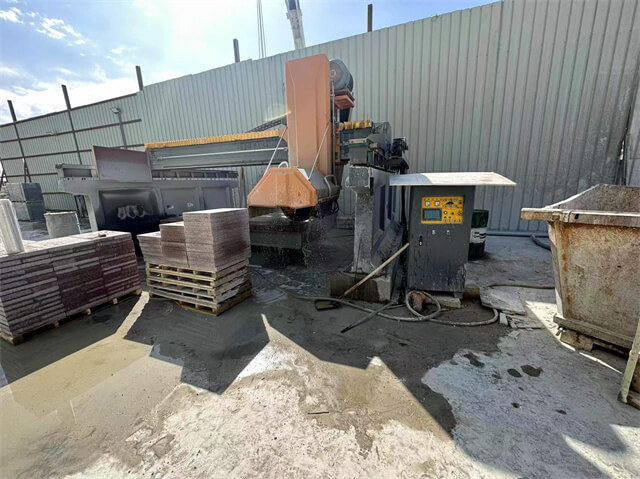
The types of granite cutting machine are mainly divided into the following:
Manual Cutting Machine: Suitable for small-scale operations or simple, straight cuts. These offer a cost-effective entry point but lack the precision and automation of other methods.
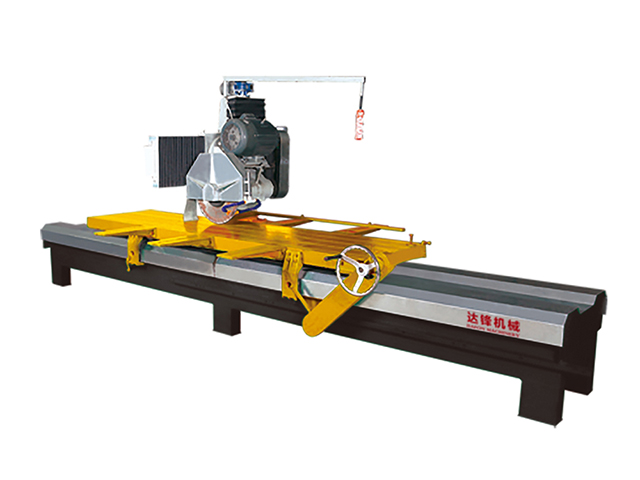
Bridge Saw Machine: Renowned for their accuracy and stability, bridge saws excel at high-precision horizontal cuts on granite slabs. They are ideal for intricate countertop designs or projects demanding flawless cuts.
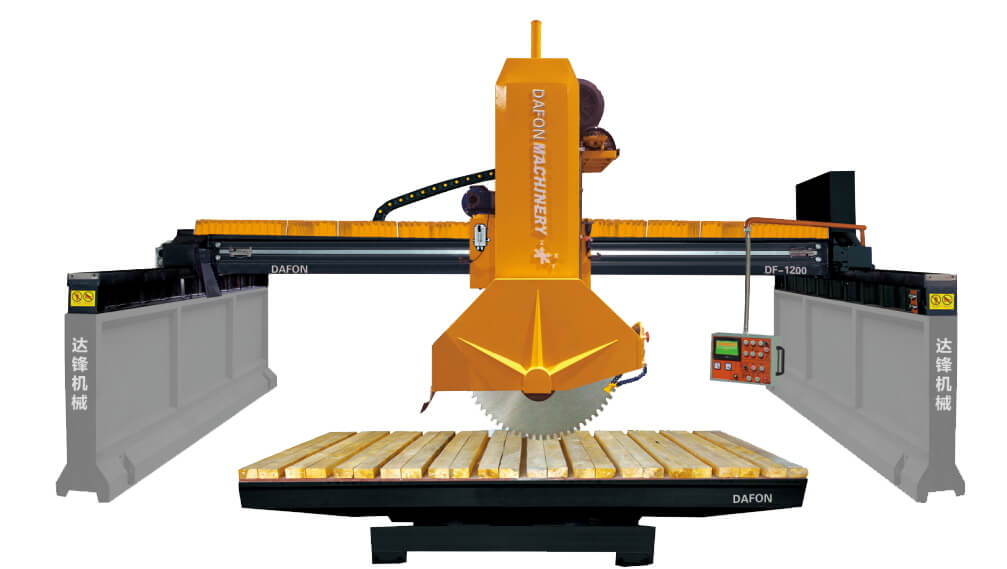
Multi-Blade Granite Cutting Machine: Designed for maximizing production efficiency, multi-blade cutters employ several diamond blades simultaneously. This significantly increases cutting speed for high-volume projects, such as tile or paver production.
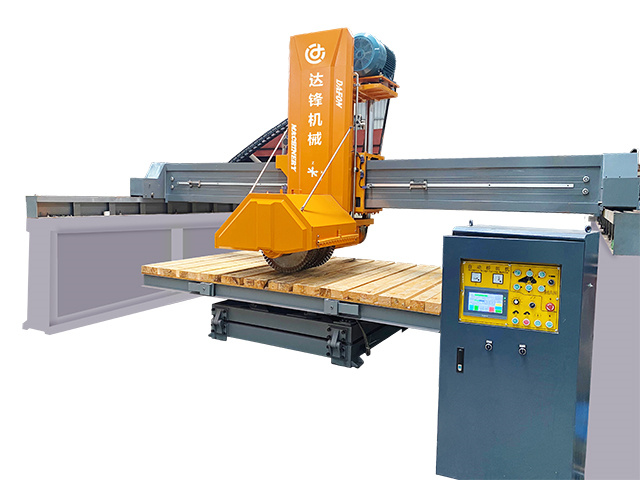
CNC Cutting Machine: Offering unparalleled precision and automation, CNC cutters utilize computer-controlled systems to execute intricate cuts and designs. They are the preferred choice for complex patterns, curved shapes, or intricate countertop profiles.
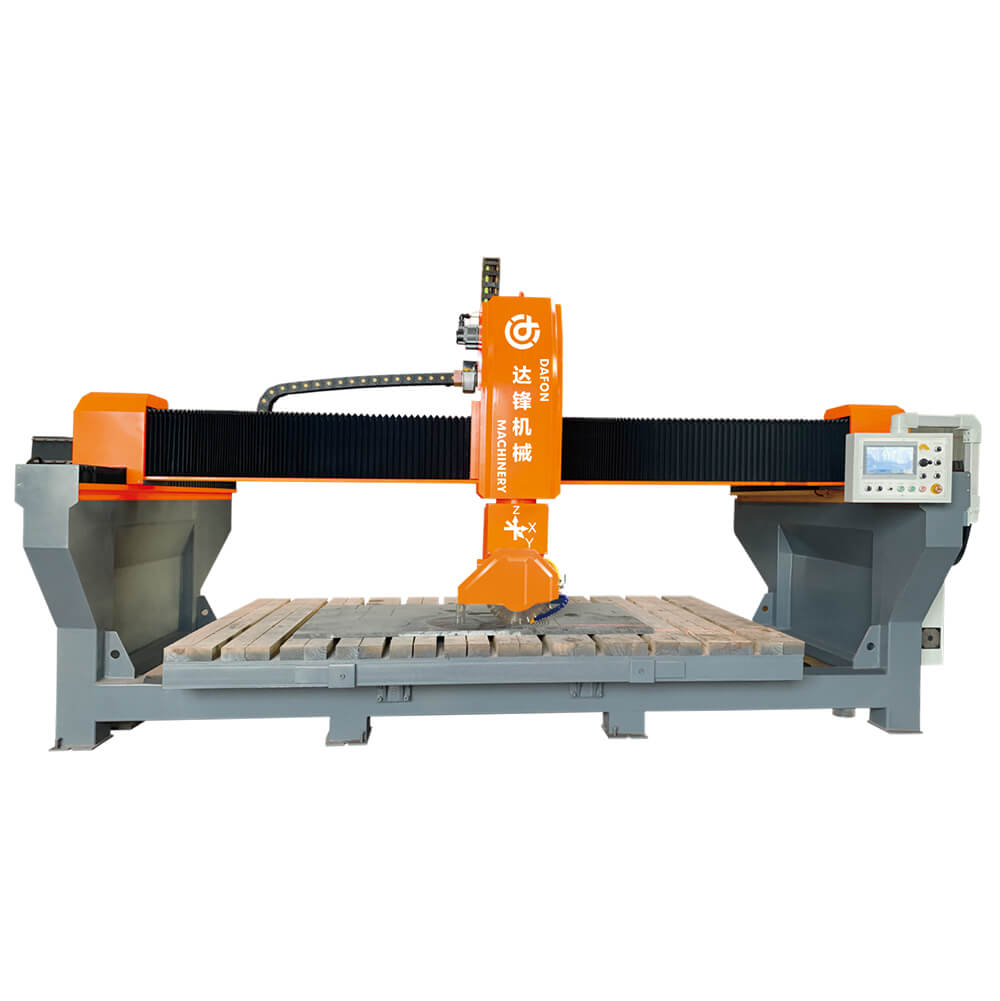
These are the common types of granite cutting machines, choose the type of machine that suits your needs and requirements can improve productivity and processing quality.
There are a variety of machines on the market suitable for cutting granite, which machine to choose to cut granite, depending on your actual needs, benchmarking your needs, Selecting the Optimal Solution
The ideal granite cutter depends on your specific project requirements. Factors to consider include:
Project Complexity: Simpler cuts may be suited for manual cutter machine or bridge saws, while intricate designs necessitate CNC machining.
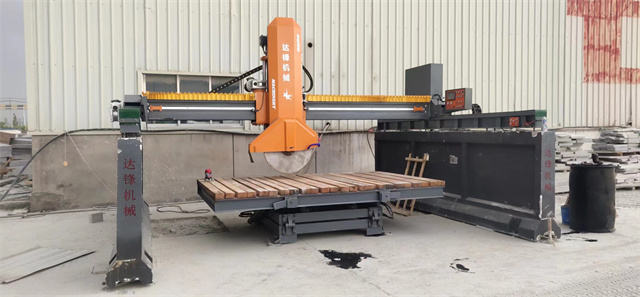
Production Volume: High-volume production often benefits from the speed of multi-blade granite cutters.
Precision Needs: CNC technology offers the highest level of cutting precision for demanding projects.
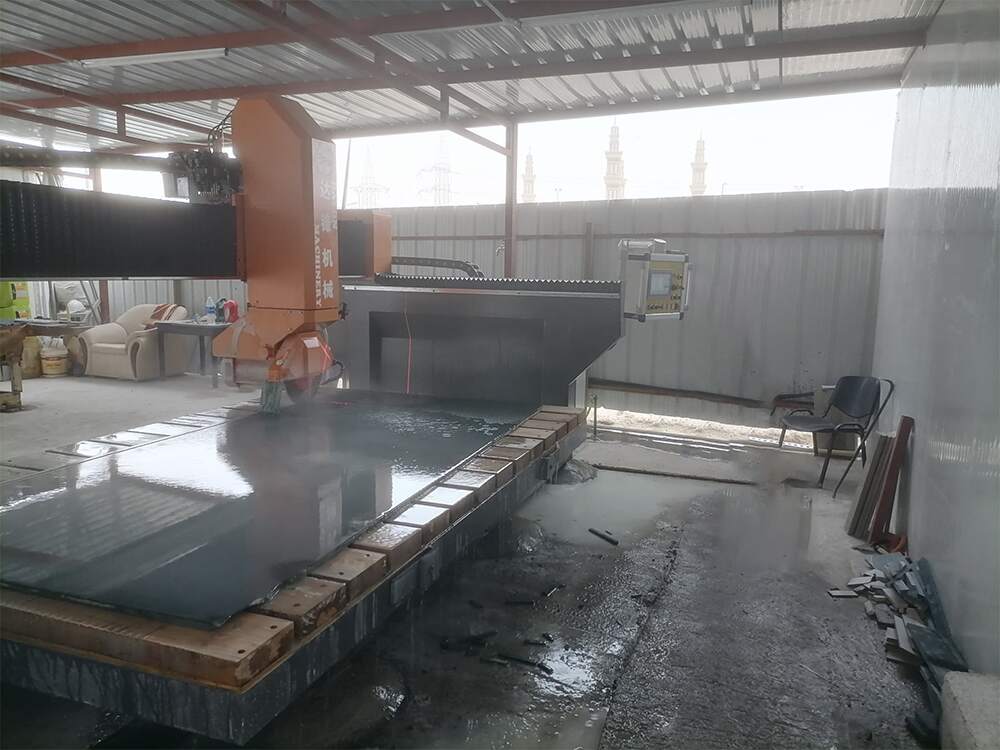
By carefully evaluating these factors, you can select the most appropriate granite cutting solution to ensure both maximized productivity and the highest quality results.
If you cut a complex pattern and get high precision, the answer is yes. Waterjet cutters have become an industry standard for shaping granite due to their unmatched precision and versatility. Unlike traditional saws that can cause chipping, a waterjet cutter utilizes a high-pressure stream of water mixed with an abrasive garnet substance to slice through granite. This method allows for intricate cuts and designs on granite slabs up to a foot thick, making it ideal for crafting unique countertops, monuments, and other high-end applications. Furthermore, water jet cutting produces minimal heat, which is crucial for preserving the natural beauty and integrity of the granite, especially when dealing with rare or delicate varieties.
If you are only using the water jet machine for simple cutting functions, there are many more cost-effective machines to choose from, such as a manual granite edge cutting machine; bridge cutting machine; multi-blade cutting machine, etc.
Stone carving machines and stone profiling machines are two common tools used to shape granite. Stone carving machines are best for creating intricate details and delicate designs, Stone engraving machines can process all kinds of complex patterns and texts with high precision and fast efficiency, which is suitable for making tombstones, stone artwork, stone decorations, and so on. while stone profiling machines are ideal for efficient cutting and shaping, such as stone balusters, balustrades, stone columns, column caps, and bases. The choice between the two depends on the specific project requirements.
Polishing Granite After Cutting
Granite slabs or thickness granite slabs
Granite slabs can be polished using two methods:
Automated Polishing Line: For large-scale polishing, an automatic polishing machine line can be employed. This method involves connecting polishing machines through a transfer frame to create an assembly line, resulting in high polishing efficiency. After cutting, granite slabs can automatically enter the automatic polishing machine for grinding and polishing.
Manual Polishing Machine: For smaller workshops, a manual polishing machine can be used. This method offers lower polishing costs but has lower efficiency.
For polishing thicker granite slabs a gantry-type single-head polishing machine can be used. The polishing head can be automatically changed to adjust to different grits. it can provide efficiently and precision results
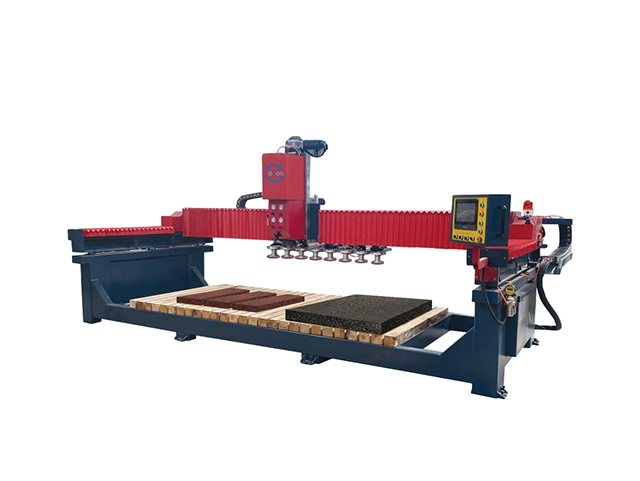
You can use diamond blades to cut granite. There are different types of diamond blades to choose from, depending on the type of granite cutting machine you use and the thickness of the granite you are cutting.
This is the most common type of Wet cutting diamond blade for cutting granite. It uses water to keep the blade cool and lubricated, which helps to extend the life of the blade and reduce dust.
If cutting granite blocks, usually use the 1600-3000 mm diamond blade; if cutting granite slabs, use the 300-1200mm diamond blade; so according to your machine to choose diamond blades
A minimum of 380 V, 3 phase is required for the operation of paper cup machines.
To reach the full production capacity, most machines additionally requires 16-37kw electricity.
1. Equipment in place, ready for installation
2. Measure the size。
Measuring Machine Bridge Sizes, The subsequent installation of cement piers and edge beams are all measured according to the dimensions。
3.1Placement of concrete piers
Measure the distance between the front and rear ends of 503CM and put it in place.
3.2 Measure the same distance between the two diagonals (within the allowable error
range of 5MM)。
Use a laser level to detect the level of the four corners of the cement pier, and adjust the level so that the four corners are at the same horizontal position.
After the level adjustment is completed, the cement pier can be temporarily fixed with expansion screws.
4. Side beam Setting
Set the screws as shown in the figure and install them in the prefabricated holes of the side beams。
The four screws at the head and tail of the side beam are slightly higher than the screws at other parts by about 2~3CM
Lift the side beams on both sides of the concrete pier respectively
5. Side Beam Measurement
5.1 Measure and adjust the front and back distance of the two side beams to be 503CM。
5.2 Measure whether the values of the diagonal lines are the same, and if they are different, adjust them to be the same
5.3Side beam level measurement
To adjust the four positions of the side beams are all on the same horizontal line
Finally, after the horizontal adjustment is completed, it is necessary to measure
whether the distance and diagonal line of the two side beams are the same。
6. Welding fixation, Fix the four screws at the head and tail of the side beam by welding。
Put down the screws in other positions and make tight contact with the top。
7. Installation of dust-proof tape for the side beam box of the main machine.
Assembly of small electric control box
Put side beam box wheels in place。
After the preparation is completed, hoist the main body of the machine
Align the wheels, the main body is lifted in place, and the wheels on both sides are in the groove。
Measure whether the left and right sides are consistent, as shown in the figure。
Lock a spacer and two nuts on both sides of the side beam box wheel, a total of eight positions, pay attention not to be too tight, the machine needs to walk back and forth in the later stage, and then lock it.
8. Installation and fixation of the working table:
1. Lift the working table and put it into the machine。
2. Connect the oil pipe of the working table, located at the oil pipe interface end at the rear end of the working table
3. After rotating the working table by 90°, the edge of the platform and the saw blade should keep a distance of about 5~10cm,
4. Working table fixed
A screw needs to be welded on the iron plate of the working table, and there are four iron plates in total
Place four iron plates processed in this way at the four corners of the working table
Insert the bottom of the iron plate plug and the middle screw into the bottom groove, lock the nut on the middle screw, fix the expansion screw on the iron plate, and lock a screw on each side to adjust the height of the working table
Granite Cutting Machines offer a one year warranty.
Regular maintenance and the replacement of defective parts may be able to extend the warranty duration.